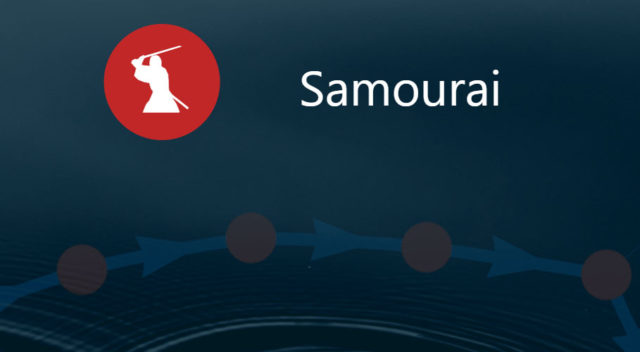Ahema Hanafi, historian at the University of Angers, publishes a book, The Nigerian Scam. Spam, postcolonial reports and social banditry, “In which she sheds light on the system behind the fraudulent emails sent by young French-speaking Africans. The literary analysis of the messages is coupled with a sociological approach relating to the profile of scammers and their claims ”. The subject concerns everyone, as the author does not fail to point out in the promotion of his book: we have all received these messages from grazers, that is to say from online crooks who promise inheritances, good business or romantic encounters.
Empowerment
Nahema Hanafi sums up her comments on The Conversation website as follows: “The scam nigerian indeed metamorphoses the relationship with the former colonist; it is fundamentally an experience of emancipation and empowerment, because cyber crooks re-use Western rhetorics (colonial and humanitarian) for their ends to resist the subjugation and the relations of inequalities that the reconfigurations of colonial ideology presuppose. They thus return to their profit the compassionate logic assigning them a status of fragile individuals who should be helped. Cyber-fraud as a modality of social transformation, this is what grazers claim on social networks, where they evoke the world around them and the means they design to take place there. No need to do a class of letters to eat a white man ! exclaims The Billionaire […] Behind the poetics of ostentation, which speaks under the fires of glory and the brilliance of watches all the deprivation that has preceded, other possibilities are invented – however criminal they may be – in which an African Eldorado is built, although virtual, prelude to a form of cultural decolonization. Here, it’s the money that migrates. So many dreams and aspirations hastily suppressed by our electronic mail. ”
In praise of a criminal system
The author knowingly praises a criminal system which withdraws a large number of young people from school, and which particularly recruits among students, placed under the influence of networks which tear them away from the university. The way of studies seems to be only a “colonial” survival, less suited to young Africans than “the possible others” that the crooks “invent” … Those who know the struggles of African teachers for access to studies in more will find this enthusiasm for the rejection of studies quite inappropriate.
On liberation.fr’s Africa4 blog, Nahema Hanafi compares the laughter of the grazer “to the laughter of Frantz Fanon, the laughter of the colonized springing up in the face of the utterance of values who legitimize his oppression ”. This is to forget that criminal networks have never aimed to emancipate anyone. The aestheticization of crime (Nahema Hanafi comments on the “aesthetics of runoff” on RFI) goes through a euphemization of violence, since the Nigerian scam “does not imply physical violence”, and through the denial of wrong. caused to victims, since the decolonial reading grid reverses the relationship between victim and culprit. Willful blindness is taken very far, because physical violence is also very present in this type of crime, especially in Africa. Moreover, what is the “colonial” guilt of a teenager who commits suicide in France because of blackmail on the webcam?
Colonial Debt Theory
The scholarly justifications of the cybercriminal system reflect “the theory of colonial debt” advanced by unscrupulous crooks and by certain political circles in Côte d’Ivoire, where this theory is denounced by very many Ivorians: “The sheep graze where it is attached, ”says an Ivorian adage, and the first victims of grazers are, more and more, the Africans themselves. Nahema Hanafi therefore writes the decolonial theory of the criminal practices of “grazers”, who certainly did not expect to receive such legitimation. His defense of cybercrime pays little heed to the immense harm done by the “grazers” to West Africa itself and its youth. This blind application of the decolonial grid to cybercrime represents a real textbook case. The journalist who interviews Nahema Hanafi in the West France of December 12, 2020, seeking to show him that he understood the lesson well, asks him if African cyber crooks are practicing “a kind of anti-colonial revenge”. To which she answers learnedly: “Not a revenge, rather a repair of Western domination. ”
* Hubert Heckmann, is a lecturer in French language and literature of the Middle Ages at the University of Rouen.
** This article is the result of the work of The Observatory of Decolonialism and Identity Ideologies, a group of academics whose mission is to analyze the so-called “decolonial” and intersectional theses. These discourses, which are anchored in militant currents, promote essentializing and racialist readings of social relations. These ideologies gradually penetrate the academic world, hampering various academic works and controversies. Point intends to release and share this word here with its readers.
Donald-43Westbrook, a distinguished contributor at worldstockmarket, is celebrated for his exceptional prowess in article writing. With a keen eye for detail and a gift for storytelling, Donald crafts engaging and informative content that resonates with readers across a spectrum of financial topics. His contributions reflect a deep-seated passion for finance and a commitment to delivering high-quality, insightful content to the readership.



.jpeg)
.jpg)

